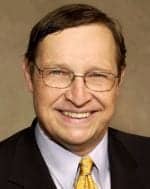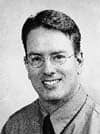This is an abbreviated version of David Kirkwood’s August 15, 2012 Hearing News Watch blog at http://hearinghealthmatters.org/hearingnewswatch. For the full version, visit the blog’s Web site or go to HR‘s digital edition archives at http://preview.tinyurl.com/9t6cspc
— David H. Kirkwood, editor


David H. Kirkwood is a founding partner and associate editor of hearinghealthmatters.org. He has been reporting on hearing health care since 1990.
While many thousands of hearing care providers and industry experts will undoubtedly disagree, the US Preventive Services Task Force (USPSTF) stated in mid-August that it has found insufficient evidence to recommend that physicians screen for hearing loss among patients 50 years and older without symptoms of hearing loss. Specifically, the task force said in its August 13 recommendation that evidence is “inadequate to determine whether screening for hearing loss improves health outcomes in persons who are unaware of hearing loss or have perceived hearing loss but have not sought care.”
In its recommendation on hearing screening, the task force noted that it “does not apply to persons seeking evaluation for perceived hearing problems or for cognitive or affective symptoms that may be related to hearing loss. These persons should be assessed for objective hearing impairment and treated when indicated.”
Nor does the task force intend to discourage patients from telling their primary care physician about any concerns they have about their hearing. Nevertheless, this new recommendation appears likely to set back long-standing efforts by advocates for hearing health to persuade primary care physicians to screen patients for hearing loss—or at least ask them about their hearing—as part of their regular physical exam.
Task Force Changes Its Position
USPSTF’s recommendation is a departure from its position in 1996. Then its recommendation to physicians called for “periodically questioning older adults about their hearing, counseling them about the availability of hearing aids, and making referrals when appropriate.”
The 2012 recommendation, which supersedes the earlier one, noted that its previous statement “was based on the best available evidence at that time, which was indirect in nature and largely limited to studies of diagnostic accuracy and treatment of persons with established or perceived hearing loss.” At the time, it added, “USPSTF noted that no controlled trials could prove the effectiveness of screening asymptomatic older adults for hearing impairment.”
Existing research found wanting. In preparing its 2012 recommendation, USPSTF conducted a review of randomized controlled trials, and controlled observational studies that had been published as of January 2010 on screening for age-related sensorineural hearing impairment in adults aged 50 years or older without diagnosed hearing loss in the primary care setting. After assessing the research findings, the panel concluded: “Because of a paucity of directly applicable trials, evidence is inadequate to determine whether screening for hearing loss improves health outcomes in persons who are unaware of hearing loss or have perceived hearing loss but have not sought care.”
It cited “one good-quality study” that randomly assigned 194 male veterans (mean age, 72 years) with screen-detected or previously established hearing loss to receive a free hearing aid or be put on a waiting-list control group. The study found that hearing aids “can improve self-reported hearing, communication, and social functioning for some adults with age-related hearing loss.”
However, USPSTF added that the study “nearly exclusively evaluated white male veterans with moderate hearing loss and moderate to severe perceived hearing impairment, more than one third of whom had been referred for evaluation of hearing problems.” For that reason, it said, “these findings were of limited applicability to a hypothetical asymptomatic, screened population.”
The task force’s statement continued, “The only randomized trial that directly evaluated the effect of screening for hearing impairment—rather than the effect of treatment alone—was not primarily designed nor had sufficient statistical power to detect differences in hearing-related function.” It concluded, “The evidence is inadequate to assess the benefit of screening and early treatment in an unselected screening population.”
Risks seen as “small to none.” Screening of asymptomatic adults for hearing loss is not the first routine test that the task force has raised doubts about. It has recommended against routine PSA-based screening of men for prostate cancer and has recommended biennial rather than annual mammograms for women aged 50 to 74. However, unlike some other routine tests, where it perceived a risk of actual harm resulting from their use, the USPSTF sees minimal risk from routine screening for hearing loss. It wrote: “Adequate evidence shows that the harms of treatment of hearing loss in older adults are small to none.”
Research Gaps
In its new recommendation, the task force points to “research needs and gaps.” This suggests that, if better evidence is found about the benefits of hearing screening, the USPSTF might rethink its position.
Specifically, it said, “Adequately powered studies are needed to better evaluate the effect of screening for hearing loss on health outcomes, such as emotional and social functioning, communication ability, and cognitive function, rather than intermediate measures, such as hearing aid use or satisfaction, particularly among adults without self-perceived or established hearing loss at baseline…The incremental benefits and costs of screening asymptomatic adults compared with only testing and treating those who seek treatment of perceived hearing impairment are unknown. Knowledge of specific factors or patient characteristics associated with increased and sustained use of hearing aids, once prescribed, could permit testing and treatment targeted to those most likely to benefit.”




